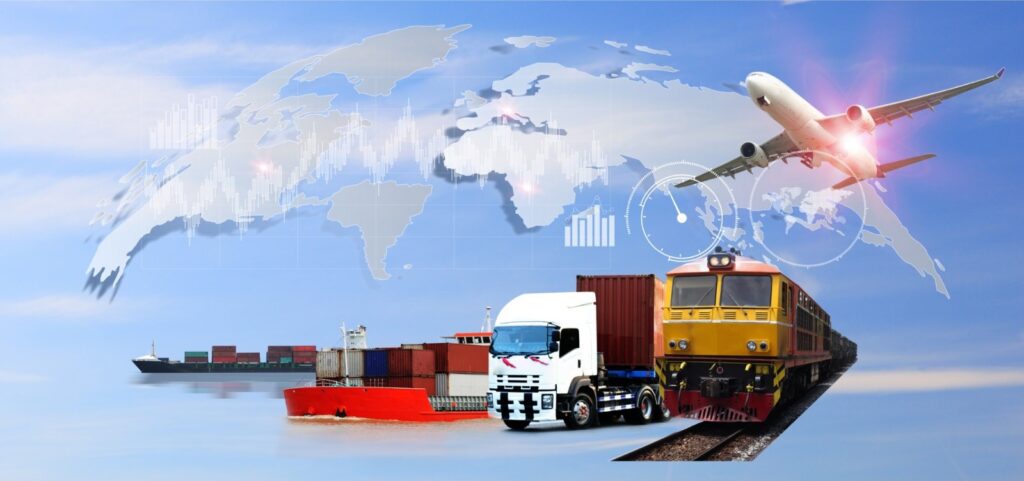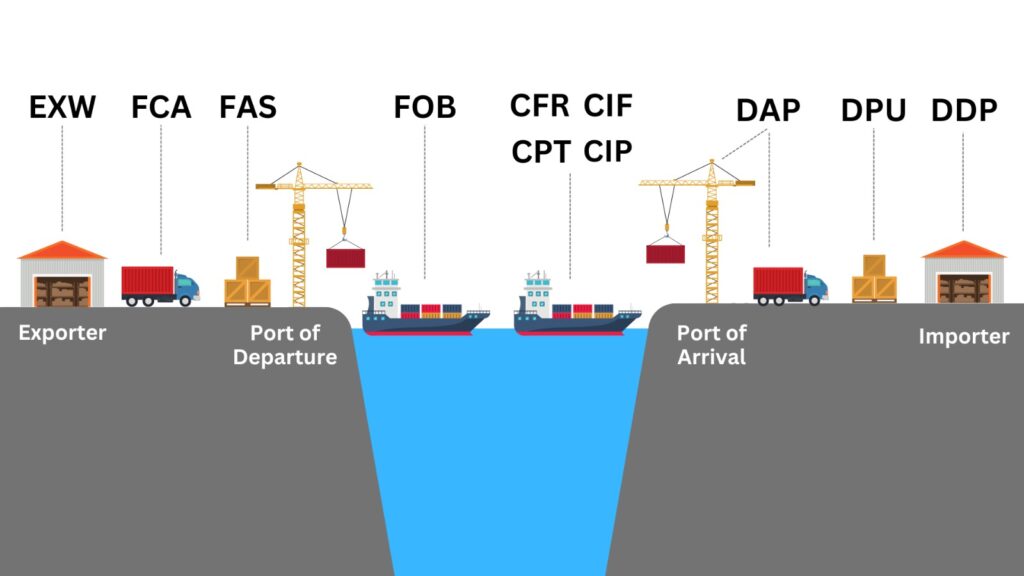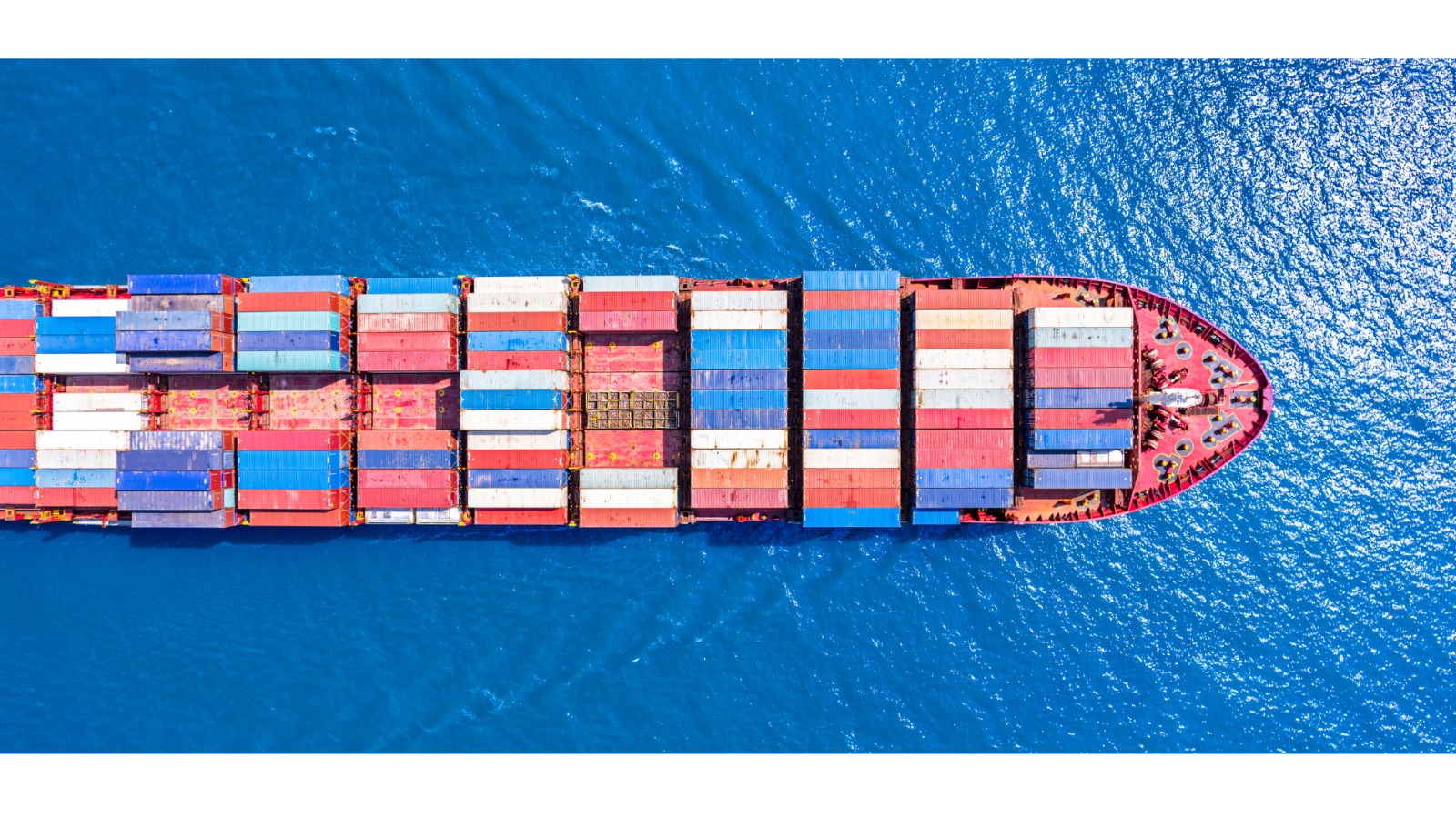Incoterms (International Commercial Terms) are the backbone of international trade, yet they are often misunderstood or misapplied. Incoterms provide a standardised set of rules that clarify the roles and responsibilities of buyers and sellers. Knowing them well and applying them correctly in every transaction is essential. This clarity is crucial for avoiding costly misunderstandings, delays, and disputes.

In essence, Incoterms define who is responsible for the shipping, insurance, and tariffs associated with the transport of goods. They also specify the point at which the risk transfers from the seller to the buyer, which is pivotal in understanding who bears the cost if something goes wrong. When these terms are not correctly understood or applied, it can lead to significant financial losses, legal issues, and strained business relationships.
Here are the top 10 responsibilities of buyers and sellers in international trade that Incoterms help to clearly define:
1. Delivery Point (Seller)
The seller is responsible for ensuring that goods are delivered to the agreed location, as specified by the chosen Incoterm. This could be the seller’s premises, a port, or the buyer’s location, depending on the agreement. Understanding this point is crucial as it marks when risk and cost shift from the seller to the buyer.
2. Risk Transfer (Both)
Risk transfer is a critical aspect of Incoterms. The point at which the risk transfers from the seller to the buyer depends on the chosen term. For example, under FOB (Free on Board), risk transfers once the goods are loaded onto the shipping vessel, whereas under DDP (Delivered Duty Paid), the seller bears the risk until the goods are delivered to the buyer’s premises.
3. Transportation (Seller)
Depending on the Incoterm, the seller may be responsible for arranging and paying for transportation up to a certain point. For example, under CFR (Cost and Freight), the seller arranges and pays for shipping to the destination port but does not cover insurance or unloading.

4. Insurance (Seller or Buyer)
Who is responsible for insuring the goods during transit depends on the Incoterm. Under CIF (Cost, Insurance, and Freight), the seller must provide insurance for the goods up to the destination port. However, under EXW (Ex Works), the buyer is responsible for insurance from the point the goods leave the seller’s premises.
5. Export and Import Duties (Both)
Incoterms dictate who is responsible for handling export duties in the seller’s country and import duties in the buyer’s country. For instance, under DDP, the seller is responsible for both, while under FCA (Free Carrier), the buyer takes on the import duties.
6. Customs Clearance (Seller or Buyer)
Depending on the Incoterm, either the seller or the buyer is responsible for customs clearance. Under DDP, the seller handles all customs formalities, while under FOB, the buyer takes on this responsibility once the goods are loaded onto the vessel.
7. Loading and Unloading (Both)
The responsibility for loading and unloading goods can vary. Under FCA, the seller is responsible for loading the goods onto the buyer’s chosen carrier, while under DAP (Delivered at Place), the buyer is responsible for unloading at the destination.
8. Documentation (Seller)
The seller must provide all necessary documentation to the buyer as stipulated by the Incoterm. This may include the bill of lading, commercial invoice, packing list, and insurance certificate. Failure to provide correct documentation can result in delays and financial penalties.
9. Notification of Shipment (Seller)
The seller must notify the buyer once the goods have been shipped. This allows the buyer to prepare for the arrival of the goods, arrange for import clearance, and prepare for any necessary payments.
10. Taking Delivery (Buyer)
The buyer is responsible for accepting delivery of the goods at the agreed-upon location and time. If the buyer fails to take delivery, they may be liable for additional costs such as storage and demurrage.
In conclusion, a deep understanding and correct application of Incoterms are essential for the smooth operation of international trade. They provide a common language that helps both parties in a transaction know exactly what they are responsible for, reducing the risk of costly errors and disputes. Whether you are a buyer or a seller, knowing your Incoterms inside and out is not just recommended—it’s absolutely necessary for successful global trade.
iTradeDigital is simplifying international trade for businesses of all sizes, everywhere – by digitizing and automating the flow of the documentation required for cross-border trade. Contact us to learn more about how we can help you simplify international trade and open up new revenue opportunities for your business or simply register online to get started.
– ##### –
Authors:
John Dunlop is a trade finance expert with over thirty years of experience in managing letter of credit and collection transactions from purchase order to final payment. Previously CEO of InterNetLC.com and is currently a Team Leader at iTradeDigital IOM Ltd.
Tony Kavanagh is a technology executive with over 25 years of experience in building brands and driving demand for companies of all sizes, globally. Skilled in GTM strategy, product marketing, PR/AR and CRM success, Tony has held senior positions at KPMG, Oracle, Salesforce, DataStax, Insightly, & XOJET. He is currently CMO at iTradeDigital IOM Ltd.
– ##### –





